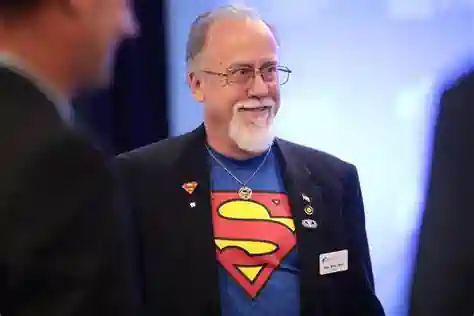Representative Brian Seitz Introduces Trey's Law - WE WIN! See below

The Missouri House of Representatives unanimously passed House Bill 709, officially named "Trey's Law," which prohibits the use of non-disclosure agreements in civil settlements involving victims of child sexual abuse and human trafficking.
Introduced by State Representative Brian Seitz, a Republican from the Branson area representing District 156, the legislation was inspired by Trey Carlock, a victim of sexual abuse at Kanakuk camp.
The bill sailed through the House with a resounding 148-0 vote and now awaits consideration in the Missouri Senate. During a passionate address on the House floor, Seitz emphasized that non-disclosure agreements were originally intended to protect corporate trade secrets, not to conceal the trauma of abuse victims or shield perpetrators.
He reiterated this stance at the April 18 meeting of the Taney County Republicans in Branson, underscoring the bill’s intent to eliminate judicial enforcement of NDAs in such cases.The legislation received robust bipartisan support, highlighted by a powerful moment when St. Louis-area Democratic Representative Tonya Rush courageously revealed on the House floor that she, too, had been a victim of childhood abuse, a disclosure she had never shared before, not even with her parents.
The push to remove NDAs in child sexual abuse cases has gained significant traction in Missouri, fueled by public outrage over lawsuits against Kanakuk involving convicted pedophile Pete Newman. A public petition advocating for the elimination of NDAs in these cases has amassed over 27,000 signatures, reflecting widespread community support for "Trey's Law" and its mission to ensure victims’ voices are not silenced.
WE WIN! THANK YOU BRIAN
Missouri Governor Mike Kehoe has signed Senate Bill 81 into law, a comprehensive public safety package that includes Trey’s Law, a measure oiriginally introduced by State Representative Brian Seitz from the Branson area. This law eliminates non-disclosure agreements that previously prevented victims of sexual assault from speaking out. The signing ceremony took place at the Governor’s Mansion on June 10.Elizabeth Carlock Phillips, whose brother Trey Carlock inspired Trey’s Law, expressed profound relief at the law’s passage. “The enactment of Trey’s Law through SB81 is a monumental achievement for Missouri,” she said. “It’s a bittersweet victory, won through immense sacrifice. I’m deeply grateful to the survivors, witnesses, and advocates who fought tirelessly for this change. Special thanks go to Representative Seitz, Senator Hudson, and the Missouri legislature for empowering victims to reclaim their voices after such devastating trauma. This law strengthens Missouri’s safety by holding predators accountable.”
Senate Bill 81 encompasses several public safety reforms, such as expanding criminal background checks and extending the Line of Duty Compensation Act, which provides $25,000 to families of fallen public safety officers for expenses like funeral costs. Governor Kehoe underscored the bill’s significance, stating, “Public safety is a cornerstone of our agenda, and this legislation delivers concrete action. It enhances oversight, supports law enforcement, and protects victims of childhood abuse, equipping Missouri with vital tools to safeguard our communities.”
Senator Brad Hudson, a key supporter in the Senate, emphasized the transformative impact of Trey’s Law. “SB81, with Trey’s Law, ensures Missouri does not harbor predators,” he said. “I was honored to push this forward, attaching it to multiple bills. Trey Carlock’s tragic story now drives a law that bans NDAs in childhood sexual abuse cases. His legacy will protect children today and in the future.”
Representative Seitz reflected on his long-standing commitment to this cause. “For four years, I’ve advocated for Missouri’s countless victims of childhood sexual abuse, too often silenced by an unfair system,” he said. “With Senator Hudson’s partnership, we’ve made historic progress through Trey’s Law. I’m especially thankful to Elizabeth Carlock Phillips for her relentless advocacy and to the many victims who shared their stories. This is just the start—we’ll keep fighting for justice for these survivors.”
